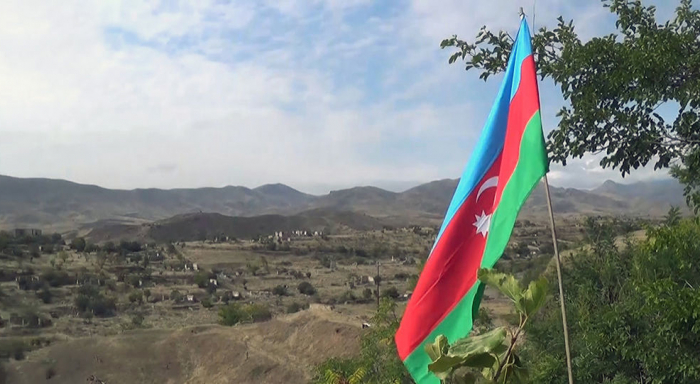On March 27, the Office of the President of the Republic of Azerbaijan proposed once again to hold a meeting in Baku in the first week of April for the purpose of reintegration of the representatives of the Armenian public of Karabakh Economic Region (KER) as well as to discuss the implementation of infrastructure projects in Karabakh. In the last two years after the Second Karabakh war, the Republic of Azerbaijan has spoken about the intention to reintegrate Karabakh’s Armenian, however, the first official meeting between the parties was held in the headquarter of Russian peacekeeping forces in Khojaly in Karabakh on March 1 2023. After the first meeting, the Azerbaijan President’s Office issued another invitation on March 13 for the Karabakh Armenians to visit Baku but left unanswered.
Azerbaijan announced earlier in 2021 that the process of Karabakh Armenian reintegration is internal matter. However, within the international negotiations some discussion held such as on 27 September in Washington between assistant to the President of Azerbaijan Hikmet Hajiyev and Secretary of the Security Council of Armenia Armen Grigoryan. According to the document leaked to the press later Azerbaijan will nominate a representative to work with a similar representative designated by the Armenian ethnic community in Karabakh to conduct discussions and the process will not prejudice to Azerbaijan’s sovereignty.
Ruben Vardanyan, Russian oligarkh of Armenian origin, who was exported to Karabakh from Russia before the Washington meeting, settled in Karabakh to sabotage the process of dialogue. The Azerbaijani side declared that it was ready to hold a dialogue with the indiginous representatives who have the right to represent the Armenian residents, and declined to receive outsiders. On Azerbaijan’s insistence after five monthes Ruben Vardanyan, has been removed from his duties by local Armenians. Shortly after that Azerbaijan appointed a special reptesentative – Ramin Mammadov, Member of Parliament, to meet with the Armenians public of KER, and on March 1, a meeting was held in Khojaly between the parties.
Official Baku, however, want to have direct talk without a mediator in negotiations with the Karabakh Armenians, whom it considers its own citizens. For this reason, the Presidential Administration invited the Karabakh Armenians to Baku two times for the continuation of the next talks. But Karabakh separatists declared that they are ready to meet only with the mediation of the command of the Russian Peacekeeping Contingent. The insistent of the separatists to have the mediation of the Russian peacekeepers stems from influence from Moscow – to control the situation in Karabakh, and the whole process. During his meeting with Ararat Mirzoyan in Moscow, Russian Foreign Minister Sergey Lavrov gave the example of Donbas and Kosovo models for the Armenians of Karabakh. Moscow wanted the Karabakh issue to be excluded from the peace agreement to be signed between Armenia and Azerbaijan. In short, Moscow favors the preservation of the status quo in the region.
Besides, Moscow tries to solidify the continued presence of illegal Armenian armed forces in the KER in violation of the terms of the 10 November 2020 Tripartite Declaration and facilitates or connives the transportation of weapons and military personnel from Armenia to KER. On 5 March two Azerbaijani soldiers killed by illegal Armenian gunmen while the Azerbaijan Army Units attempted to stop and inspect the vehicle of the Armenian military formations transporting illegal military supplies thorugh Khankendi-Khalfali-Turshsu dirt road. After that, the Ministry of Defense of Azerbaijan announced several times that Armenians were using dirt roads for illegal purposes. These statements were actually a call to the international community to react the illegal use of this road. After the Azerbaijan`s MOD statements Russian peacekeeping forces started to accompany illegal Armenian formation to use dirt roads for military purposes. On 11 March the presented video footages by Azerbaijani MOD clearly demonstrated that the movement of military vehicles of the Armenian armed forces units and illegal Armenian armed detachments along the above-mentioned route was accompanied by a BTR-82A fighting vehicle belonging to the Russian peacekeeping contingent. At the same times military aircraft belonging to Iran made a non-stop flight along the Azerbaijan-Iran state border at a distance of 3-5 km from the state border, and in some cases over the state border.
Furthermore, ignoring the warnings of the Ministry of Defense of Azerbaijan, the Russian peacekeeping forces started to accompany the Armenian armed forces for the expansion of dirt roads – Azerbaijan defense ministry released a related video on March 24. Although the Armenian side claimed that these roads were used for humanitarian purposes the video footage circulated clearly revealed that the vehicles here were military ones. With this development, the Azerbaijani side voiced again the opinion about the necessity to put a checkpoint on the Lachin road. While there is such a checkpoint at the entrance from the Armenian side, the absence of such a checkpoint from Azerbaijan makes situation non-transparent. It shlould be noted further that the installation of checkpoints at the border is inherent rights of the states, according to international law.
As a result, on March 25, the Azerbaijani army was deployed at some heights, preventing the use of dirt roads for military purposes by Armenian illegal military forces. But in parallel, all roads are open to meet the humanitarian needs of Karabakh Armenians.
To summarize, despite the efforts to reach peace agreement after the Second Karabakh War and calls for the launch of the Karabakh Armenians reintegration process, as per the agreement reached in Washington on September 27 2022, the transportation of weapons from Armenia to the KER and the misuse of the roads leading to Karabakh, in violation of the Tripartite Declaration of 10 November 2020, increases the military tension in the region.
Javid Valiyev is Head of the Foreign Policy Department of the Baku-based Center for the International Relations Analysis (AIR Center).
More about:
















































